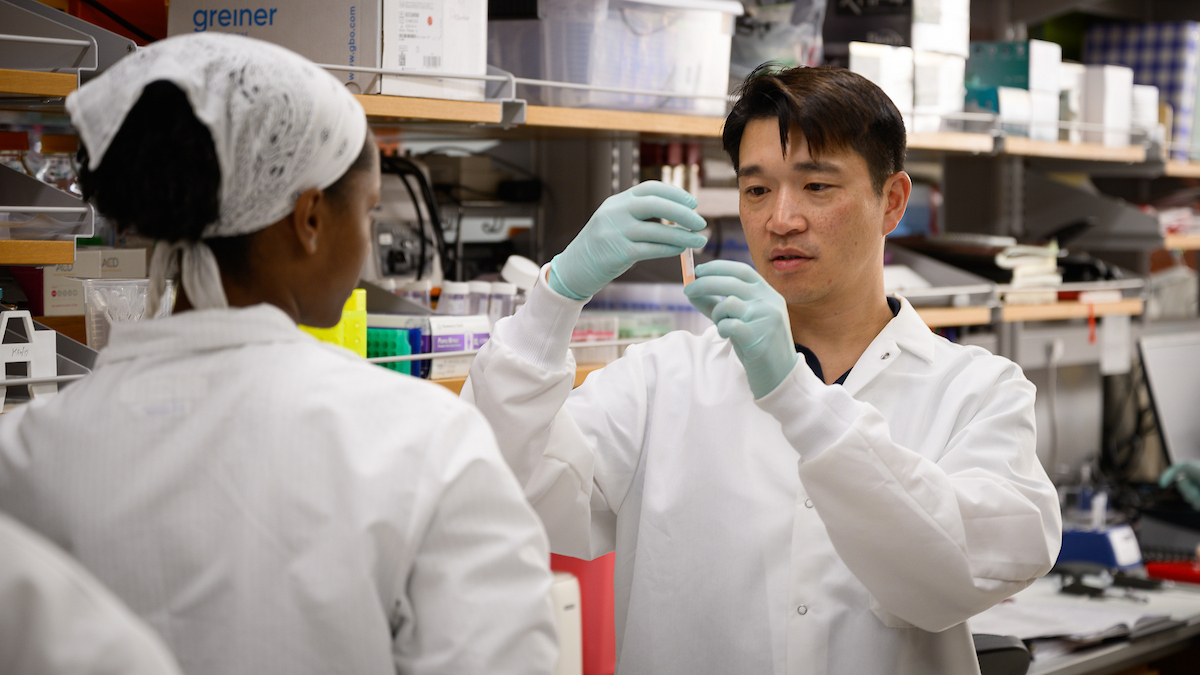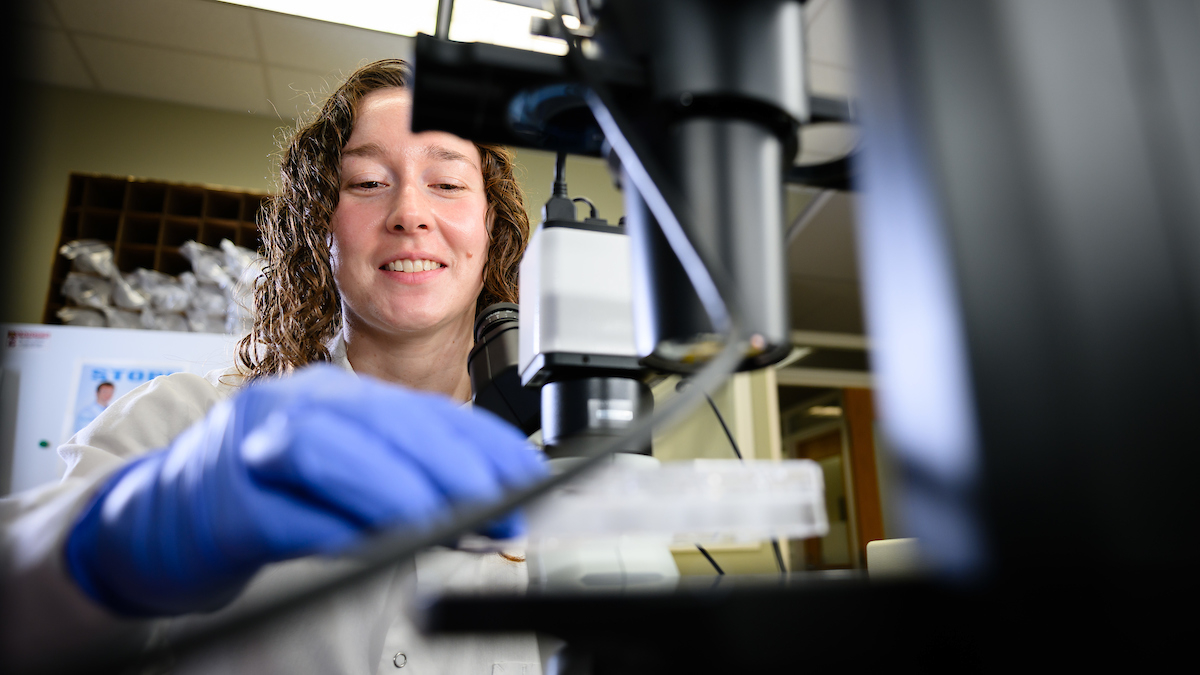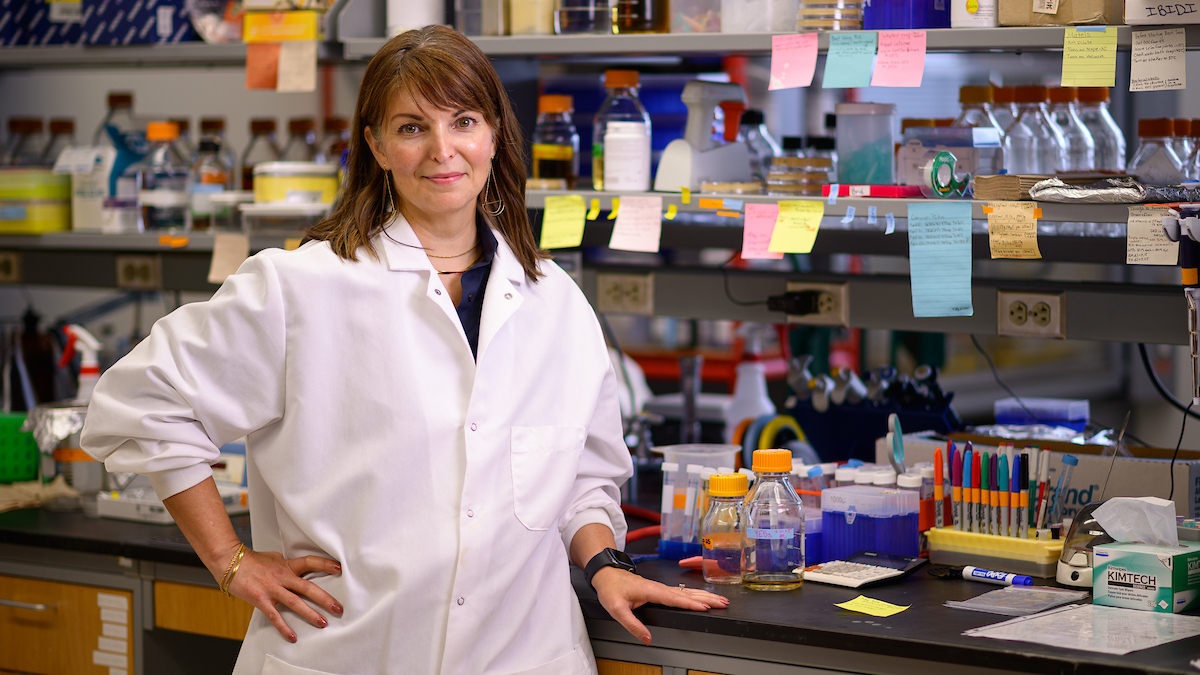Short-term antimicrobial therapy for the treatment of mild to moderate bacterial pneumonia in adult horses
Principle Investigator
Description
Bacterial pneumonia is a common condition in horses that most often develops after long distance transportation, viral infections, or esophageal obstruction (choke). It can lead to prolonged and expensive therapy with potential complications including sepsis, laminitis, and death. In humans and small animals with bacterial pneumonia, guidelines suggest treating with antimicrobials for 5-10 days, whereas there are no specific guidelines in equine medicine. It is common for many horses to be treated for 2-4 weeks or more, yet there is no evidence that this is truly necessary. Prolonged antimicrobial therapy (AMT) has lasting effects on the horse’s microbiome, significantly increases the cost of treatment, and has negative implications for antimicrobial stewardship and antimicrobial resistance.
It is well-documented in other species that changes in the lungs seen via radiographs (x-rays) or ultrasound often persist despite resolution of the infection that causes pneumonia, yet ultrasound is often the main tool used to guide the duration of AMT in equine pneumonia. In other species, inflammatory markers in the blood are used to guide the duration of AMT, and this approach has led to significantly shorter courses of therapy with no difference in outcome. The objective of the proposed study is to use serum amyloid A (SAA), an inflammatory marker, to guide the duration of AMT in adult horses with naturally occurring pneumonia and to track the ultrasonographic changes seen in the lungs of horses over the course of therapy. At the time of initial diagnosis, cultures of tracheal aspirates will be performed in addition to bloodwork and ultrasound exams. Bloodwork (including SAA) and ultrasound exams will be repeated regularly while the horse is hospitalized for AMT. Once SAA returns to normal, AMT will be discontinued, and the horse will be monitored for 7-10 days for any signs of recurrence of disease. At the 7–10-day time point, cultures, bloodwork and ultrasound exams will be repeated to show that this approach to antimicrobial therapy is effective, and to confirm that some ultrasonographic changes will still be present at this time, despite clinical resolution of the pneumonia.
Testing Requirements
Horses that are enrolled in the study will have tracheal aspirates, bloodwork, and thoracic ultrasound performed at admission- all items that are part of the normal diagnostic evaluation for pneumonia. Horses will then have blood drawn every 2 days and ultrasound performed every 3 days until SAA returns to normal range. Once SAA has normalized, antimicrobials will be stopped and monitoring will continue for an additional day. Then, 7-10 days after the last day of antimicrobial therapy, a recheck examination will be performed included a repeat tracheal aspirate, bloodwork, exam, and thoracic ultrasound.
Enrollment Start
07/21/2025
Enrollment Finish
07/21/2027
Eligibility
To be enrolled in the study, horses must be 2 years of age or older, and have been diagnosed with pneumonia based on ultrasonographic findings and either a) a positive culture on tracheal aspirate OR b) the presence of suppurative inflammation on cytology of a tracheal aspirate. Horses that require oxygen supplementation or have > 1 cm of fluid visible on ultrasound in their chest will be excluded from the study, as will horses that have previously been treated for pneumonia, have pulmonary cancer, or have equine multinodular pulmonary fibrosis. Once SAA has normalized, antimicrobial therapy has been discontinued and horses have been discharged from the hospital, they will be required to undergo a recheck evaluation 7-10 days later, ideally at NCSU. For certain animals that are within a reasonable driving distance of Raleigh this exam may take place on the farm.
Contact
Dr. Kate Hepworth-Warren, klhepwor@ncsu.edu
- Categories:


